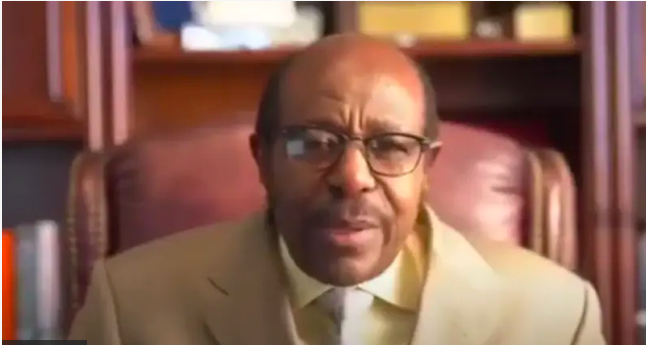On February 21, 2024, evening, during a video conference from the United States, where he resides, Paul Rusesabagina addressed the UK Parliamentary Human Rights Committee, composed of members from both houses of Parliament. Rusesabagina, a critic of the Rwandan government, detailed his arrest and subsequent treatment in Rwanda, describing his detention conditions as akin to being held in a “slaughterhouse” without any form of freedom or justice.
Rusesabagina, known for his opposition to the Rwandan government, shared his experience of being kidnapped from Dubai and flown to Kigali in August 2020, only to be released in March 2023, largely due to pressure from the United States. During his two years and seven months in detention, he stated that no family members or friends were allowed to visit him, describing his capture and the inhumane treatment he endured. He recounted being blindfolded, bound, and subjected to torture over four days in a location where, he claimed, others were also tortured and killed.
A Rwandan court in September 2021 sentenced him to 25 years in prison, finding him guilty of terrorism charges. However, Rusesabagina has contested the fairness of his trial, asserting that he was not tried impartially and that the legal representation offered to him was inadequate, with the Rwandan government refusing his choice of foreign lawyers.
During his interaction with the UK committee, which is investigating the human rights situation in Rwanda in light of the UK’s asylum-seeker deportation agreement with Rwanda, Rusesabagina highlighted the lack of independence in Rwanda’s legal and political system. He criticized the Rwandan Patriotic Front (RPF), led by President Paul Kagame, suggesting that opposition or criticism of the government equates to being an enemy of the state, potentially facing death.
Rusesabagina also touched on the personal repercussions for his family members in Rwanda, who were subjected to regular interrogations and pressure due to their association with him. Despite a letter released by the Rwandan Ministry of Justice claiming Rusesabagina’s remorse and request for pardon, which he supposedly wrote to President Kagame, Rusesabagina and his legal team have not publicly commented on its authenticity.
Rwanda has consistently denied allegations of Rusesabagina’s mistreatment. However, his narrative raises significant concerns about human rights and the rule of law in the country. Rusesabagina’s release, according to him, was influenced by international outcry, particularly from the United States, suggesting his case received attention due to his international profile.
Rusesabagina, who became famous after the release of the film “Hotel Rwanda,” which portrayed his efforts to save hundreds of lives during the 1994 Rwandan genocide, has since been a vocal critic of President Kagame’s government. Despite the Rwandan government’s rebuttals and efforts to present a different image, Rusesabagina’s testimony to the UK Parliamentary Committee underscores ongoing debates about human rights and justice in Rwanda, challenging the narrative of safety and security promoted by some international partners, including the UK government.
































































